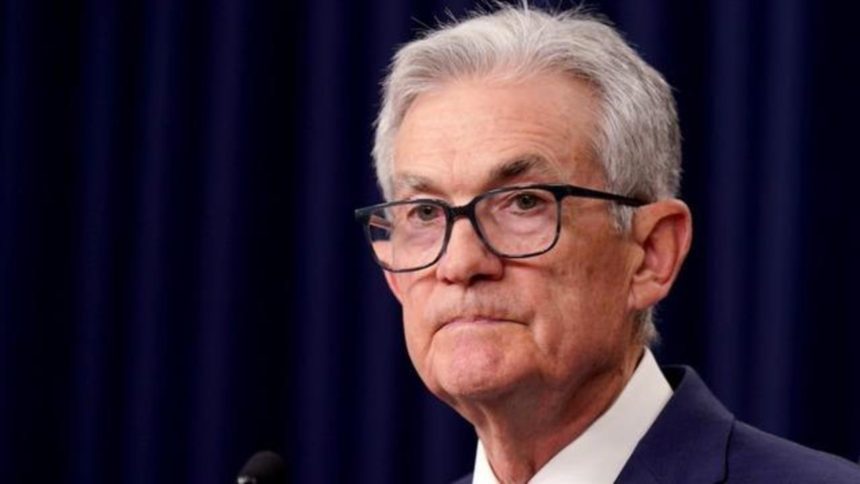Investors are bracing for the Federal Reserve to dial back its rate cut predictions for 2024. Despite initial expectations of more aggressive rate cuts, recent developments have led to a shift in market sentiment.
Most market watchers believe policymakers will dial their expectations back. The question is by how much.
The new projection on Wednesday will come in the form of a so-called “dot plot,” a chart updated quarterly that shows the prediction of each Fed official about the direction of the federal funds rate.
“I think the policy path will change a bit,” said former Kansas City Fed president Esther George, who predicts the median among 19 policymakers could drop to one cut even as a healthy number of officials still argue for two.
“My expectation is the dots will show and confirm what I think the market has picked up, and that is fewer rate cuts with the inflation forecast holding.”
Fed Chair Jay Powell and his colleagues on the Federal Open Market Committee have been emphasizing they want to be sure inflation is moving “sustainably” down to their 2% target before starting cuts, and that in the interim they expect to hold rates higher for longer.
That stance isn’t expected to change this week. Officials are widely expected to hold the Fed’s benchmark rate steady on Wednesday, leaving it at a 23-year high.
A mixed picture
Policymakers are expected to stay cautious because the latest readings on inflation and the economy offer a mixed picture.
The labor market added 272,000 nonfarm payroll jobs in May, significantly more additions than the 180,000 expected by economists, but the unemployment rate rose to 4% from 3.9%.
Prices aren’t accelerating as much as they were during the first quarter, but recent readings also don’t show enough progress for the Fed to start cutting.
The year-over-year increase in the Fed’s preferred inflation gauge — the “core” Personal Consumption Expenditures index — was 2.8% in April, unchanged from March.
Another complication is that wages are showing resilience, as well. Wage growth was stronger than expected in May, clocking in at 4.1%.
Fed officials will get a fresh reading from another inflation gauge, the Consumer Price Index (CPI), just hours before concluding their policy meeting this Wednesday. It is expected to show continued moderation during May after an encouraging April.
The year-over-year change in so-called “core” CPI — which excludes volatile food and energy prices the Fed can’t control — is expected to edge down a tenth of a percent to 3.5%, compared with 3.6% in April and 3.8% in March.
A 3.5% print on CPI may not be enough to inspire confidence at the Fed, according to George.
“I think it’s just going to take them quite a bit longer to figure out what the trend is,” George said.
Betting on September
Powell has made clear that he thinks the Fed will need more than a quarter’s worth of data to make a judgment on whether inflation is steadily falling toward the central bank’s goal of 2%.
The September meeting is viewed by many as an optimistic case for cutting rates since the three inflation reports due out between now and then would all need to show improvement for the central bank to pull the trigger.
In the meantime, investors expectations for the number of rate cuts this year have swung wildly.
Odds for a first cut in September fell to roughly 52% following the hotter-than-expected jobs report released Friday, and wagers for a second rate cut dwindled to little more than a 38% chance in December.
Luke Tilley, chief economist for Wilmington Trust, is more optimistic. He expects the central bank will have enough data to change its tune by its policy meeting on July 31.
The inflation data in the first month of the second quarter has helped calm fears about hotter readings in the first quarter, he said, and the CPI data out Wednesday will offer further reassurance.
“By the time July 31st comes around, they’ll have three more months of inflation data,” Tilley said. “I think they’ll be back on the front of their feet and off their heels and ready to cut. But it really comes down to how that data comes out.”
Wednesday will also bring other new Fed projections for investors to digest this week, as policymakers will also offer fresh forecasts for inflation, the economy and unemployment.
And there will be the usual high level of scrutiny on whatever Powell has to say at his regular press conference following the meeting.
Wilmer Stith, bond portfolio manager for Wilmington Trust, is looking to see whether Powell takes a more hawkish tone.
“Is he going to be like a [Minneapolis Fed President Neel] Kashkari and other members who say we need to be higher for longer?” says Stith.
“It’s hard to say because if we continue to get the economic growth and the labor market strength that we’ve seen, I don’t even know why they’d want to do one cut.”
Stith said he thinks officials will pencil in two rate cuts. If the Fed only marks down just one, that could add some volatility to markets, he added, even though that is currently what investors expect.
There is a risk the Fed could become too patient in its quest to be sure inflation is dropping, George said. Holding rates this high for too long could also sow the seeds of a recession.
“That’s the risk they’re running here, is to say ‘time is on our side,'” she said.



